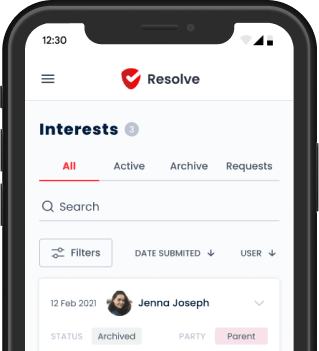Understanding Conflict of Interest
Conflict of interest is a common issue in the workplace. Most of us have heard someone say, “It’s who you know, not what you know.” We may have heard co-workers complain that a manager’s relative always gets the biggest raise or the best assignment. Or we might have seen colleagues accept gifts from potential vendors. Whatever the situation, they all fall under the heading of “conflict of interest.”
What is a Conflict of Interest?
A conflict of interest occurs when an individual’s personal interests – family, friendships, financial, or social factors – could compromise his or her judgment, decisions, or actions in the workplace. Government agencies take conflicts of interest so seriously that they are regulated. Industry organizations, corporations, and universities follow that lead by including conflicts of interest in their policies, regulations, and standards of operating procedures.
The management of risk associated with conflict of interest is foundational to ensuring high levels of integrity and public trust.
In every organization, and on every organization board, there is potential for conflict of interest to occur. Ideally, conflicts of interest should be avoided wherever possible; but if not, they should be declared and managed appropriately.

Types of Conflict of Interest and Duty
A conflict of interest is where an employee or director has private interests that could improperly influence, or be seen to influence, their decisions or actions in the performance of their duties.
Conflicts may be actual, potential, or perceived.
Actual conflict of Interest
There is a real conflict between an employee or director’s public duties and private interests.
Potential Conflict of Interest
An employee or director has private interests that could conflict with their job duties. This refers to circumstances where it is foreseeable that a conflict may arise in future and steps should be taken now to mitigate that future risk.
Perceived Conflict of Interest
The public or a third party could form the view that an employee or director’s private interests could improperly influence their decisions or actions, now or in the future.
Role Duties and Private Interests
Role duties are the official tasks that you perform in your role as an employee or director. A private interest means anything that can influence an employee or director.
Private interests may be direct or indirect, and financial or non-financial.
Direct Interests
Includes an employee or director’s own personal, family, professional or business interests.
Indirect Interests
These include the personal, family, professional or business interests of individuals or groups with whom the employee or director is, or was recently, closely associated.
Financial Interests
These interests involve an actual, potential or perceived financial gain or loss. Money does not need to change hands for an interest to be financial!
People have a financial interest if they (or a relative, or a close associate) own property, hold shares, have a position in a company bidding for government work, receive benefits such as concessions, discounts, gifts or hospitality from a particular source related to the public sector organization, or can benefit financially from a decision significantly influenced or made by the organization.
Non-financial Interests
A non-financial interest might arise from personal or family relationships, or involvement in sporting, social or cultural activities.
They include any tendency toward favouritism or prejudice resulting from friendship, animosity, or other personal involvement with another person or group. If personal values are likely to impact on the proper performance of public duty, then these can also lead to a conflict of interest.
Is your current process the best way to register Interests?
Manual methods like paper and spreadsheets or complicated software that isn’t fit for purpose can do more harm than good. Resolve offers the perfect purpose-built solution to declare and track all your Interests. Not only that, but you can also record Gifts, Travels & Vehicle Expenses – everything you need in a single platform to keep your workplace and employees 100% compliant. Get early access to Resolve today!

Early Access Promotion
Keep your organization and employees 100% compliant. Save 30% on your first 6 months on any monthly plan.

